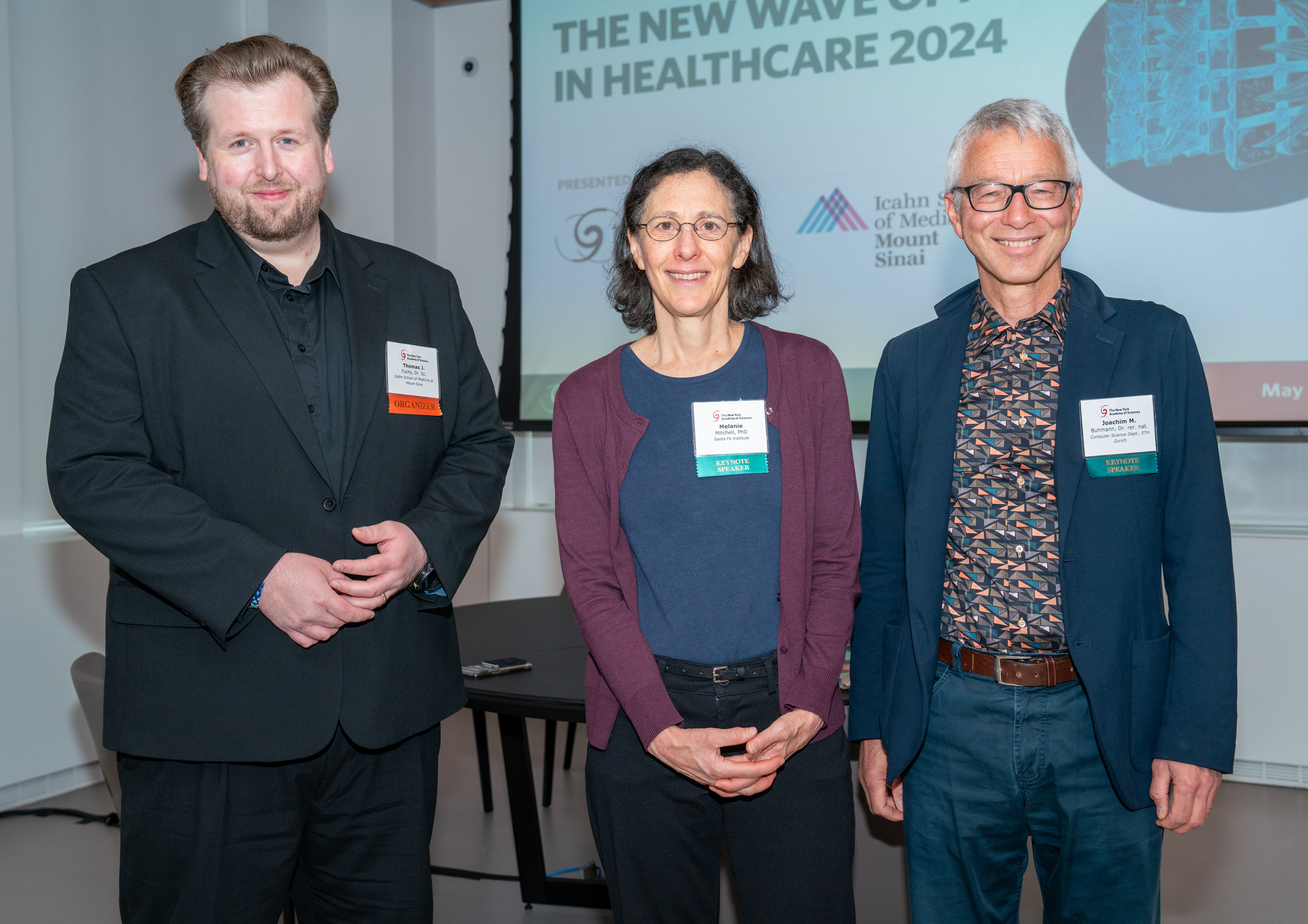ARTICLE SUMMARY:
Even as artificial intelligence holds transformative promise in healthcare, big systems are grappling with its implications and limitations. A conference organized by the New York Academy of Sciences and the Icahn School of Medicine at Mount Sinai highlights some of the opportunities and concerns.
Artificial intelligence (AI)—and generative AI in particular—is taking the world by storm, but it has special implications for healthcare systems, which are excited by its potential to address long-standing challenges and intimidated by its speed, complexity, and limitations.
This was apparent at The New Wave of AI in Healthcare 2024 conference in May in New York organized by the Windreich Department of Artificial Intelligence and Human Health at the Icahn School of Medicine at Mount Sinai and the New York Academy of Sciences (NYAS), where speakers highlighted AI’s promise in clinical medicine—and its enormous flaws. The first keynote speaker, Joachim Buhmann, Dr, natural sciences, and professor of computer science at ETH Zurich, began with the strong comment that artificial intelligence is “a paradigm shift in the life sciences, and I would go even a step further and say it’s a paradigm shift in human thought.” He then proceeded to caution against over- and under-fitting of information, pointing out that while we do not fully understand how algorithms work, we can still control them with training.
The second keynote speaker, Melanie Mitchell, PhD, the Davis Professor of Complexity at the Sante Fe Institute, phrased the conundrums posed by AI differently. “Many of us have big questions about AI—is it going to hugely increase our productivity? Is it going to revolutionize medicine, law, and scientific discovery? Is it going to be smarter than humans at all cognitive tasks and replace us at our jobs? Is it going to destroy democracy … and cause human extinction? I don’t think anyone has the answers to these questions. But I think perhaps AI’s past might give us some guidance.”

